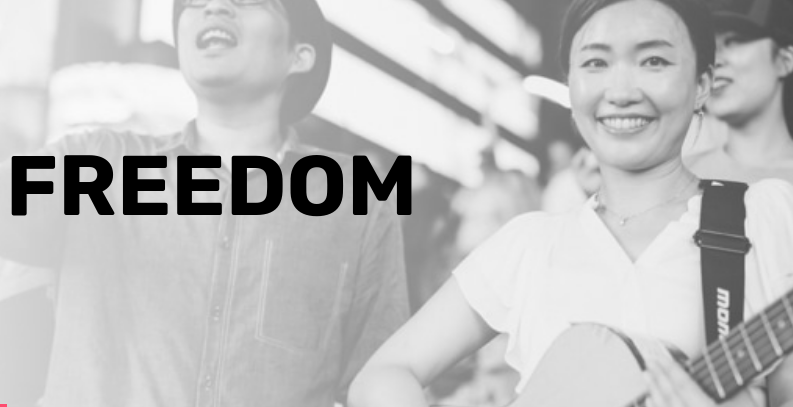
Pastor Wang Yi and wife Jiang Rong (photo from ChinaAid's Wang Yi page)
A Christian church in Chengdu has once again been harassed by government officials, according to ChinaAid. On October 28th, the Early Rain Covenant Church had its meeting interrupted and nine members were taken away by police.
In the midst of the worship service, more than officials from the Political Security Bureau (formerly known as State Security) and the Civil Religion Bureau suddenly entered the room. More than 20 individuals, including police and community officials, interrupted the ceremony and declared the gathering illegal.
“HOUSE CHURCH GRADUATION CEREMONY INTERRUPTED, CHRISTIANS TAKEN AWAY”, ChinaAid. October 31, 2023.
Early Rain has been an irritant to the Chinese government for years, leading to an earlier arrest of Pastor Wang Yi. Other church leaders were forced to stay at home. Wang Yi encourages displays of public worship and he himself has taken a stand against the government persecution:
Pastor Wang Yi drafted and initiated “A Declaration for the Sake of the Christian Faith”. He wrote it in response to the Chinese government’s implementation of the new Religious Affairs Regulations (RAR). Wang Yi called on pastors to come forward, publicly state their beliefs, and refuse to sign the new regulations. At one point, Pastor Wang Yi even publicly called on Xi Jinping, the highest head of state in China, to repent.
The Council on Foreign Relations describes the set of regulations to which Wang Yi was reacting:
The State Council, the government’s administrative authority, passed regulations on religious affairs, which took effect in February 2018, to allow state-registered religious organizations to possess property, publish literature, train and approve clergy, and collect donations. Yet alongside these rights come heightened government controls. The revised rules include restrictions on religious schooling and the times and locations of religious celebrations, as well as monitoring of online religious activity and reporting donations that exceed 100,000 yuan (around $15,900).
Albert and Maizland. “Religion in China” . Cfr.org. Updated on Sept 25, 2020.

Despite the assurance of religious freedom in China’s constitution, the religion of nationalism as directed by the Communist Party is the effective state mandate. Regulations proclaimed in 2021 say, “Religious clergy should love the motherland; support the leadership of the Chinese Communist Party; support the socialist system…”
The US Commission on International Religious Freedom describes the environment surrounding people of faith in China :
In recent years, the CCP has tasked leaders of state sanctioned religious groups to promote its religious policies, particularly the “sinicization of religion” policy, which has led to protests from religious communities. Authorities have persecuted state-sanctioned clergy who opposed such policies. For example, authorities in Zhejiang province—a location with a large Christian population and previously known for its relative tolerance of Christianity—have intensified a crackdown on Christianity in recent years, including by persecuting state-sanctioned Christian leaders who opposed government policies. Notably in 2016 and 2017, Zhejiang authorities removed from office, and ultimately detained and arrested Protestant pastor Gu Yuese—a high-profile leader of the official Protestant group in Zhejiang—for his open opposition to the local authorities’ forced cross removal and church demolition campaign.
Against this backdrop, the new Measures on clergy—along with the 2018 Regulations on Religious Affairs—could generate an even greater chilling effect, forcing more clergy of state-sanctioned religious groups to openly endorse government policies at the expense of their religious convictions. According to reports, on May 2, a day after the new Measures became effective, a state sanctioned Protestant pastor in Wenzhou city, Zhejiang, was seen in a recorded video using the Bible to publicly promote the CCP’s political propaganda and policies during a sermon. Clergy members who run afoul of government regulations and policies could now face severe penalties, especially for security-related charges such as “religious extremism,” “separatism,” and “terrorism,” which are particularly concerning for clergy of Muslim groups.
US Commission on International Religious Freedom. China Factsheet. October 2021.
As the Chinazis try to turn churches into yet another arm of the Communist monster, Christian leaders like Wang Yi stand in the way. The “Declaration for the Sake of Christian Faith” says, in part:
We are willing and obligated under any circumstance to face all government persecution, misunderstanding, and violence with peace, patience, and compassion. For when churches refuse to obey evil laws, it does not stem from any political agenda; it does not stem from resentment or hostility; it stems only from the demands of the gospel and from a love for Chinese society.





